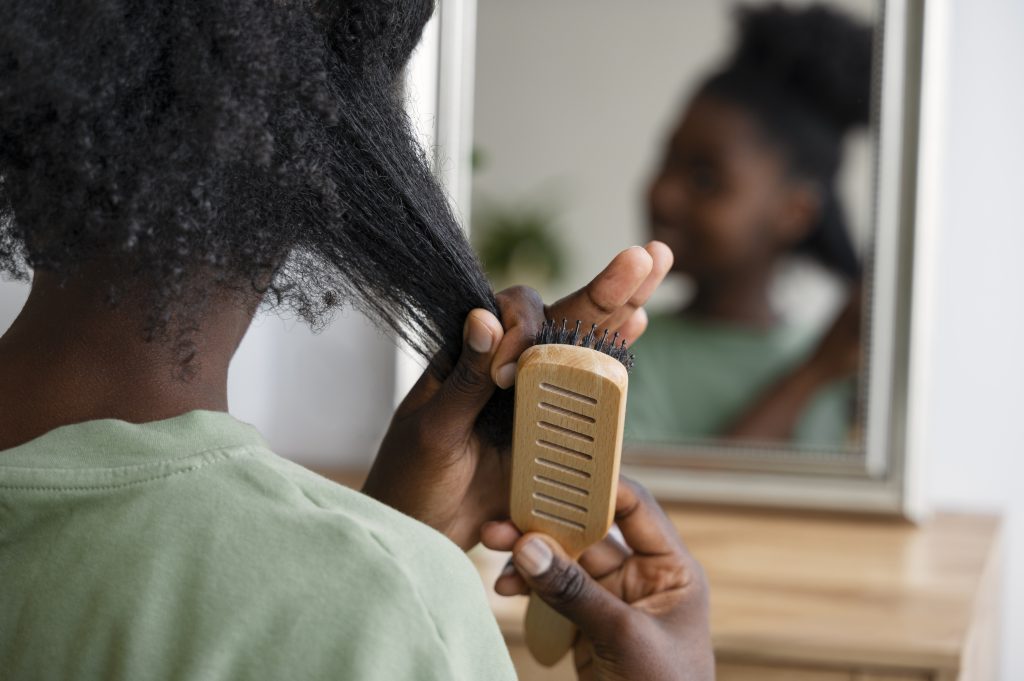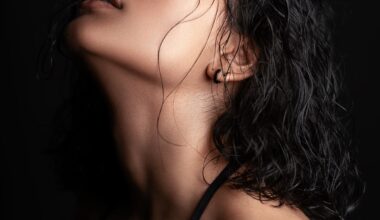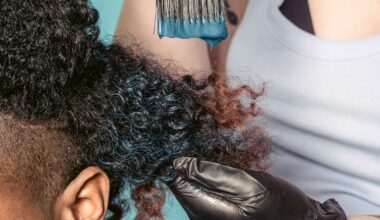
Apart from age, genetics, hormonal imbalances, stress, and overall health, protein deficiency is one of the many factors that can affect healthy hair growth.
Protein is a vital nutrient that plays a critical role in the growth and maintenance of hair. Each hair strand is made up of keratin, a type of protein that strengthens, protects, and boosts your hair. Adequate protein stimulates your hair follicles, boosting hair growth and promoting healthy hair. Protein is also important for maintaining the overall health of your scalp. A malnourished scalp cannot produce healthy hair strands. Protein, therefore, provides the necessary nutrients the scalp needs to repair damaged hair follicles, strengthen hair strands and boost hair growth.
Negative Effects of Protein Deficiency on Hair Growth and Health
Protein primarily nourishes the scalp and stimulates the hair follicles. Lack of protein in the hair can have several negative effects, including:
1. Dry and Itchy scalp
Lack of protein in the scalp can cause it to become malnourished, making it dry and unable to produce or retain moisture. This can make the scalp susceptible to other scalp conditions like dandruff, product buildup, etc.
2. Hair thinning
When the scalp is not getting adequate nourishment, the hair follicles responsible for producing hair strands suffer and become too weak to produce healthy hair. This results in thinning of the hair, a condition in which once healthy and voluminous hair stops growing and the existing strands become dull and lifeless.
3. Hair Breakage
Lack of protein can prevent the scalp from producing sebum, a natural oil the scalp produces to moisturize the hair. This can result in dry hair strands that snap or break easily.
4. Hair loss/Alopecia
Protein primarily nourishes and protects the hair and scalp from damage caused by several factors. Protein deficiency in the body can, among other things, result in the scalp not getting the adequate nutrients needed to boost and maintain growth. This can result in severe hair loss or even alopecia.

Benefits of Protein for Hair
- Nourishes the scalp: A healthy scalp is essential for healthy hair growth. Proteins contain amino acids that help to increase blood flow to the scalp and stimulate healthy hair growth.
- Repairs Damaged Follicles: Protein contains nutrients that can help revive damaged follicles and prevent further damage to the scalp.
- Strengthens and protects strands: The nutrients that protein contains also strengthen and protect the hair from damaging external factors like excessive heat styling, tight hairstyles, harmful chemicals in hair products, exposure to UV radiation, and other harsh weather conditions.
- Boosts Hair Growth: Protein boosts hair growth by replacing broken hair strands to increase hair thickness and strengthen the strands to reduce breakage.
- Improve overall appearance: Protein helps prevent the hair from looking dull and lifeless by promoting the production of natural oils that moisturize the hair. This helps keep the strands hydrated and protected from becoming dry or prone to breakage.
Sources of Protein for Hair
When there isn’t enough protein in the body, it can lead to weaker and brittle hair that is prone to breakage.
There are several sources of protein that are beneficial for maintaining healthy hair. One such source is eggs, which contain high levels of biotin, a vitamin that promotes healthy hair growth. Other sources include lean meats such as chicken and turkey, fish like salmon and tuna, and Dairy products. These foods not only provide high-quality protein but also contain essential fatty acids that nourish the scalp.
If you’re vegetarian or follow a vegan diet, plant-based foods are also great sources of protein. Foods such as lentils, beans, quinoa, nuts, and seeds all provide adequate amounts of plant-based protein to support strong and healthy hair. Overall, incorporating these foods into your diet can help ensure you get enough quality protein for optimal hair health.
How to Add Protein to Your Hair
There are various methods you can use to incorporate protein into your hair care routine. Some of the common methods include:
1. Using Protein-based Hair Masks
Protein-based hair masks are the most effective way of nourishing your hair. They provide intensive nourishment that helps replenish lost protein and protect your strands from further damage. These hair masks often come in rinse-outs and leave-ins, depending on the severity of the damage you want to treat. You can either buy a ready-made hair mask or make one at home with natural ingredients you already have in your kitchen.
2. Using Protein-rich Shampoos and Conditioners
Washing your hair with protein-rich shampoos and conditioners can help restore lost nutrients caused by excessive exposure to heat, chemical treatments, and other harsh external factors. Protein-rich shampoos and conditioners are often rich in other hydrating and replenishing ingredients that nourish your strands to boost hair growth.
3. Protein Hair Sprays
Protein sprays are a great addition to your hair treatment routine. They are easily absorbed and provide a quick protein boost without weighing the hair down.
While adding protein to your hair can strengthen and nourish your strands, excessive use can lead to dryness and breakage. If you’re trying to treat natural or severely damaged hair, consulting a professional stylist before incorporating these products into your routine is highly recommended.

Tips for adding protein to hair
Excessive use of protein can also have adverse effects, so knowing the right amount of protein your hair needs and what works best for you is important. Here are a few tips to guide your choices:
- If you have fine or low-porosity hair, you should go for light proteins like hydrolyzed silk or wheat protein, as they are easily absorbed into the strands.
- For medium to high porosity hair types, keratin proteins work best as they help replenish damaged areas of the cuticle layer.
- How often you should use protein treatments depends on the severity of the damage you’re trying to treat. If you’re experiencing breakage or shedding due to excessive heat styling or chemical treatments, applying weekly until your hair condition improves is ideal.
- Applying it once a month will suffice if you only need a protein boost without treating anything.





